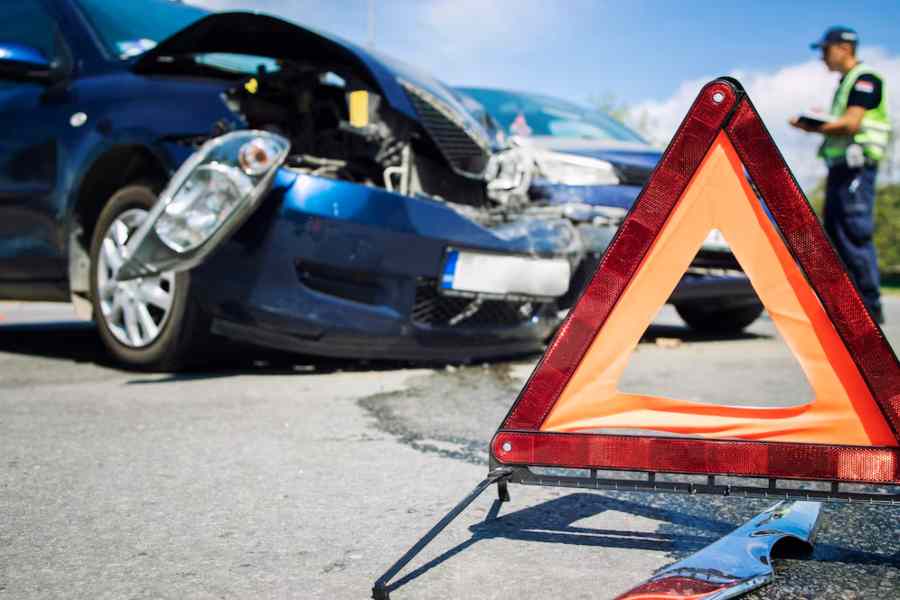When you get rear-ended, it might seem obvious who’s at fault: the driver behind you, right? Not so fast. While rear-end collisions are typically straightforward, they’re not always black and white from a legal standpoint. Things can get complicated quickly, especially when insurance companies get involved or injuries are more serious than they initially appear. That’s why speaking with a Denver car accident lawyer early on is one of the smartest moves you can make. They’ll help ensure you’re not taken advantage of during what can quickly become a stressful, frustrating process.
The Myth of Automatic Fault
Most people assume the driver in the back is always at fault. While that’s often true, it’s not a legal guarantee. There are plenty of situations where the lead driver could share the blame—or even be fully responsible. Did the car in front slam on the brakes for no reason? Were their brake lights out? Did they suddenly reverse?
Colorado follows a comparative negligence rule, which means fault can be shared between drivers. If you’re found to be partially responsible, it could reduce the amount of compensation you receive—or eliminate it entirely if you’re deemed more than 50% at fault.
How Insurance Companies Complicate Things
Even when the facts seem clear, insurance companies are trained to protect their bottom line. That often means minimizing your payout or denying your claim altogether. They might argue your injuries were pre-existing or that your behavior contributed to the crash. This is especially common in low-speed collisions where property damage is minimal, but you still suffer injuries like whiplash or back strain.
To them, less visible damage equals less responsibility. But anyone who’s been rear-ended knows you don’t need a totaled bumper to end up in physical therapy for months. A skilled Denver car accident lawyer can push back against these tactics and make sure your medical records and other evidence are properly presented.
Injuries Can Take Time to Show Up
You might feel okay right after the crash, but symptoms often show up hours—or even days—later. Adrenaline can mask pain in the moment, especially with soft tissue injuries like whiplash, which are common in rear-end collisions. You may also experience headaches, neck stiffness, or back pain that gradually worsens.
It’s critical to seek medical attention immediately after the accident, even if you feel fine. Delaying treatment not only puts your health at risk, but it also gives insurance companies an excuse to argue your injuries weren’t related to the crash.
According to Johns Hopkins Medicine, even minor neck injuries can have long-lasting effects if not treated early. That’s why documenting everything—from the accident scene to your first visit to a doctor—is essential.
Road Conditions and Mechanical Failures
What if the driver behind you slid into your car because of icy roads? Or maybe their brakes failed suddenly. While those circumstances may lessen their fault, they don’t necessarily absolve them of liability. Drivers are still expected to maintain control of their vehicles, regardless of conditions. That means slowing down on slick roads and keeping their vehicles properly maintained.
A Denver car accident lawyer can dig deeper into the case, looking into weather reports, road maintenance logs, or even mechanical inspection records, to determine who should really be held responsible.
The Role of Witnesses and Dash Cams
When it’s your word against the other driver’s, evidence becomes crucial. Witness statements, dash cam footage, and traffic camera recordings can all support your version of events. Unfortunately, many people don’t think about gathering this information until it’s too late.
If you’re involved in a rear-end collision, try to speak to any nearby witnesses, take photos of the scene, and write down everything you remember while it’s still fresh. These details could make or break your case later on.
Consumer Reports says that dash cams are becoming one of the most reliable tools for proving fault in car accidents. If you drive regularly, investing in one could save you a legal headache down the line.
Don’t Accept a Quick Settlement
After a rear-end crash, the at-fault driver’s insurance company may offer you a quick settlement. It might even seem generous at first glance. But here’s the catch: once you accept that offer, you typically waive your right to pursue further compensation, even if you later realize your injuries are more serious than you thought.
This is another reason why speaking with a Denver car accident lawyer before accepting any settlement is so important. They’ll evaluate the full scope of your damages—including future medical costs and lost wages—and negotiate for a fair deal that truly reflects what you’re owed.
The Hidden Costs of a “Minor” Accident
Even in low-speed collisions, the costs can pile up fast. Between vehicle repairs, medical bills, and time off work, a simple rear-end accident can become financially overwhelming. And if you’re dealing with a hit-and-run or an uninsured driver, things get even trickier.
Many people don’t realize that Colorado requires drivers to carry uninsured/underinsured motorist coverage unless they explicitly reject it. This type of coverage can be a lifesaver—but navigating it alone isn’t always easy.
That’s where having a knowledgeable Denver car accident lawyer by your side really pays off. They can help you file a claim under your own policy and ensure your insurance company honors its obligations.
Conclusion: Get Legal Advice Before You Assume Anything
Getting rear-ended might seem like an open-and-shut case, but the legal side can be anything but simple. Whether you’re dealing with stubborn insurers, unclear liability, or delayed injuries, there’s often more going on beneath the surface. Talking to a Denver car accident lawyer early on can protect your rights and help you get the compensation you truly deserve. Don’t let assumptions—or the other driver’s insurance company—determine the outcome of your case.


